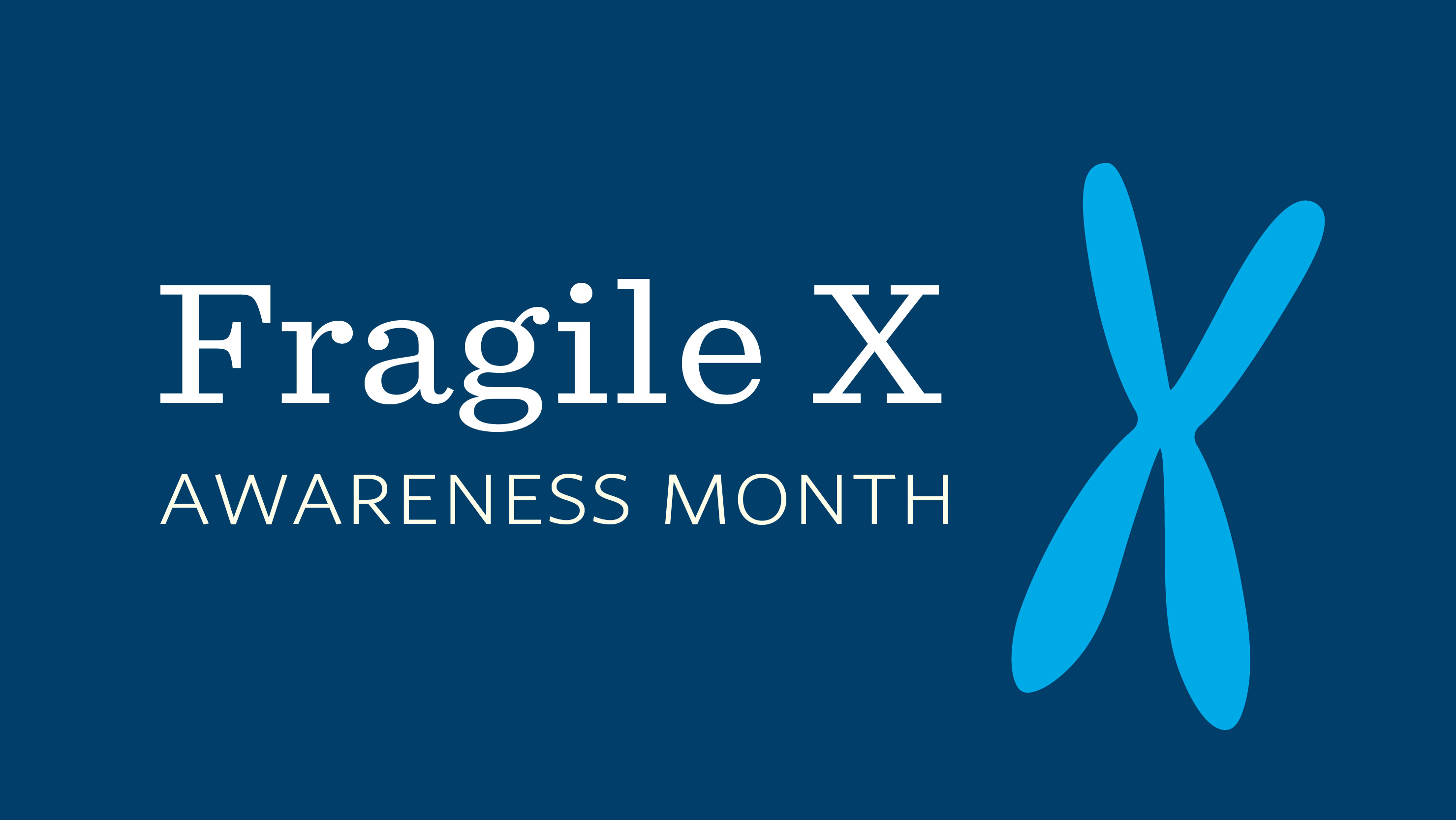
July is National Fragile X Awareness month. After spending the past two days speaking with those impacted by Fragile X syndrome including patients, parents and world-renowned experts at the 16th International Fragile X conference, I’ve learned there are 5 important and often overlooked benefits of having a Fragile X syndrome diagnosis.
1- Having an explanation.We all feel guilty about things that aren’t our fault. This is even truer for parents, who feel the responsibility to nurture, love and teach their children. Receiving a diagnosis of Fragile X can help relieve parents of their guilt in thinking they may have done something during pregnancy or infancy to cause their child’s delays.
2- Fragile X syndrome is a family diagnosis. Unlike other genetic disorders, Fragile X premutation carriers can have a wide variety of symptoms. A permutation carrier is an individual who has less than 200 CGG repeats in the FMR1 gene and usually do not exhibit obvious signs associated with Fragile X. However, we now know these individuals may develop Fragile X-associated Tremor/Ataxia syndrome, and women may go through early menopause. The Fragile X premutation is now a hot topic of study for many researchers, and we are learning more about the many medical, social and emotional effects of the premutation. Knowing if you carry the premutation can help you identify and treat the symptoms of the premutation.
3- Informed decisions about family planning.Even though Fragile X is the most common form of inherited intellectual disability, many children aren’t diagnosed with Fragile X syndrome until they are 3 or 4 years old, even if they have been showing symptoms since infancy. A Fragile X diagnosis gives parents the knowledge and power to choose how to grow their family. They can decide whether they want to have more children naturally, go through pre-implantation genetic testing, test for Fragile X syndrome prenatally, or enjoy their family as it is.
4- Access to services and individualized treatment.Oftentimes, having a genetic diagnosis makes it easier to get services such as speech and behavioral therapy. We also know how people with Fragile X syndrome learn. For example, most individuals with Fragile X syndrome can see the big picture even if they have a hard time with sequential learning. By having a diagnosis of Fragile X and understanding their educational strengths and weaknesses, teachers and parents can tailor lessons to maximize the child’s potential. For example, by teaching sight words instead of phonetic reading. This also extends beyond school age, when it’s time to look for work and living arrangements. Appreciating the unique challenges faced by individuals with Fragile X (like hypersensitivity to sounds and social anxiety) can help families and caregivers better navigate daily life and choose the best living and working environment.
5- Becoming part of the Fragile X family. Families with Fragile X syndrome are some of the most supportive and understanding people. They develop close relationships with other families in their local region and across the world, often getting together to fundraise and promote Fragile X causes. Parents often give their personal cell phone numbers to any newly diagnosed families who may want to talk, reach out and learn more. Fragile X families are happy to participate in research, spread awareness about Fragile X and most importantly, be there to support one another.



